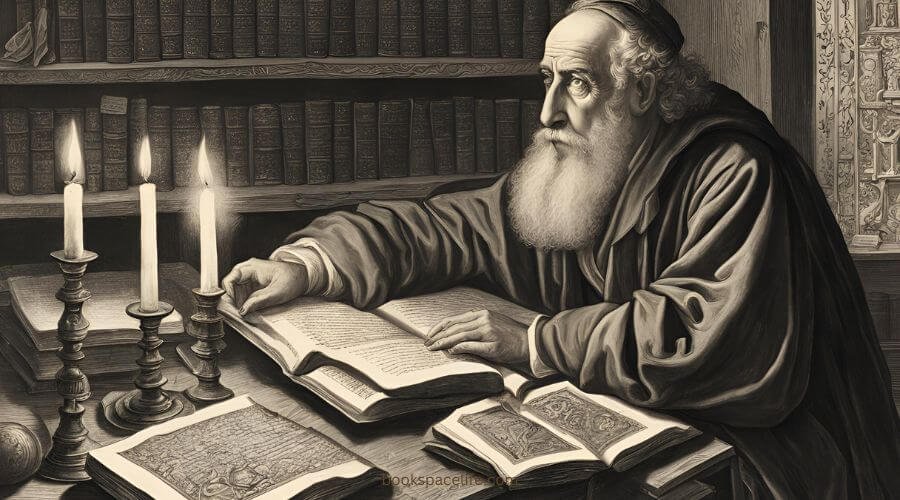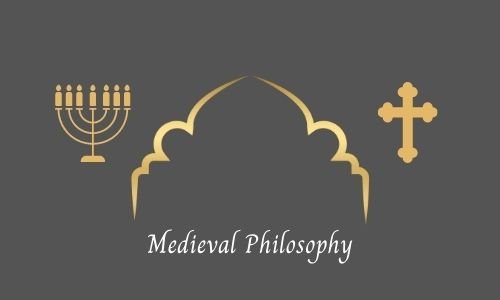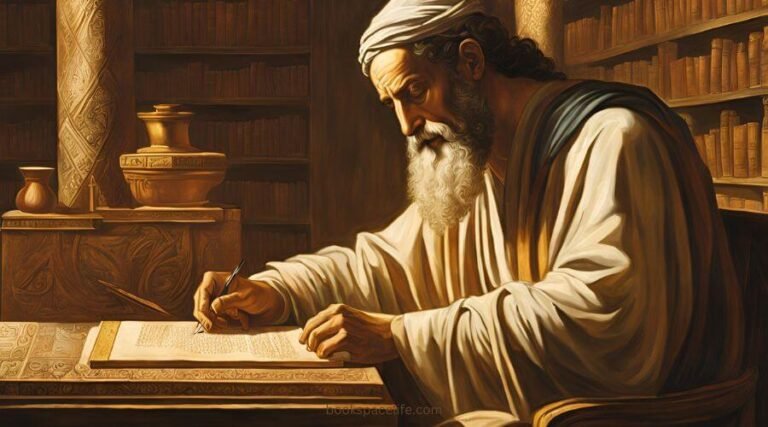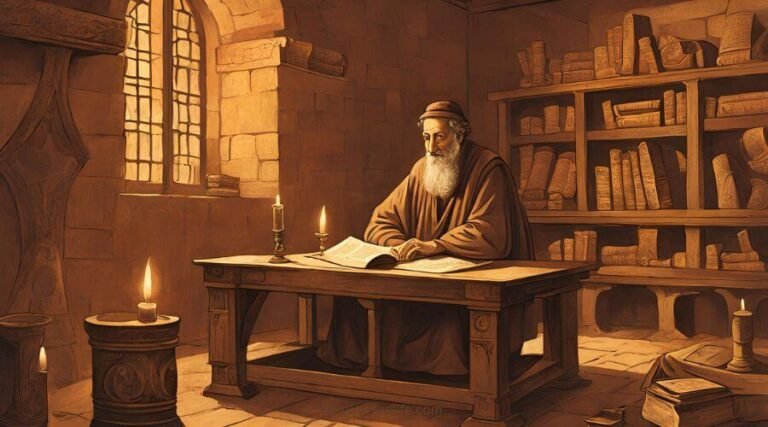Philo of Alexandria
Levi ben Gershon: A Renaissance Philosopher in the Jewish Tradition
Gersonides, also known as Levi ben Gershon (1288–1344 CE), was one of the most significant Jewish philosophers, mathematicians, and astronomers of the Middle Ages.
Hailing from Provence in southern France, his work spanned across a number of disciplines, including philosophy, theology, and science, and his intellectual contributions have had a lasting influence on both Jewish and non-Jewish thought.
His unique combination of rationalism and devotion to Jewish tradition led to a body of work that was widely studied in both the Jewish and Christian intellectual circles for centuries.
In this blog post, we will explore Gersonides’ life, education, travels, and philosophical contributions, examining how he blended Jewish thought with medieval scientific theories and how his works influenced the intellectual world of his time and beyond.
Table of Contents
(1) Early Life and Education
Levi ben Gershon was born in 1288 in the town of Bagnols, located in the region of Provence in southern France, which was part of the Kingdom of Aragon at the time.
His family was part of the Jewish community in Provence, a region that was a hub of Jewish scholarship during the Middle Ages.
Gersonides was born into a time when the Jewish community in southern France was experiencing both intellectual flourishing and political instability, as the region was subject to changes in political rule and social upheaval.
As a young man, Gersonides showed exceptional intellectual promise. His early education was rooted in traditional Jewish learning, particularly the study of the Talmud and Torah, but it was in the fields of philosophy and science that he truly excelled.
Gersonides was heavily influenced by the works of earlier Jewish philosophers like Maimonides and Saadia Gaon, as well as by the intellectual currents of medieval Europe, which included Aristotelian philosophy and the rapidly advancing fields of astronomy and mathematics.
Like many Jewish intellectuals of his time, Gersonides was exposed to the works of Islamic philosophers and scientists, who had preserved and expanded upon the ancient Greek and Roman traditions of scientific inquiry.
The works of figures such as Avicenna, Averroes, and Al-Farabi were key influences on Gersonides’ intellectual development.
His studies of Aristotle’s philosophy, particularly in the areas of metaphysics and natural science, allowed him to engage deeply with the great questions of existence, free will, and the nature of the universe.
(2) Travels and Life Experience
While Gersonides’ early years in Provence provided him with a solid foundation in Jewish learning and secular sciences, his travels and later life experiences were equally significant in shaping his intellectual output.
Much of his later work took place in the city of Perpignan, which was a significant intellectual center for Jewish scholars during his time.
In Perpignan, Gersonides continued to teach, write, and engage with other scholars. It was also here that he began to refine his thoughts on the relationship between Jewish religious thought and the Aristotelian philosophy that was gaining prominence in the Western intellectual world.
Gersonides’ engagement with scientific and philosophical ideas was not confined to theoretical study.
He was also involved in the practical application of science, particularly in the field of astronomy.
One of his most significant scientific accomplishments was the development of new astronomical tables, which he created to improve the accuracy of astronomical predictions.
His work in this field was based on the principles of Ptolemaic astronomy, but he also sought to improve upon these models by incorporating his own observations and calculations.
His travels and engagement with the broader intellectual world allowed Gersonides to develop a more comprehensive understanding of the natural world, blending Jewish faith with rationalism and scientific inquiry.
His ability to harmonize religious thought with the scientific knowledge of his time would become one of the defining features of his philosophy.
(3) Philosophy and Intellectual Contributions
Gersonides’ philosophical works are most famous for their rationalist approach to Jewish theology, as well as their exploration of the nature of free will, divine knowledge, and the cosmos.
He is best known for his philosophical masterpiece, The Wars of the Lord (Milhamot HaShem), a vast and complex work that addresses numerous theological and philosophical issues.
In this work, Gersonides engages with questions about the nature of God, the problem of evil, and the relationship between divine omniscience and human free will.
One of Gersonides’ key contributions to Jewish philosophy was his distinctive interpretation of the relationship between God and the universe.
While he was deeply influenced by Aristotelian thought, he differed from many of his contemporaries in his understanding of divine knowledge.
In contrast to the view espoused by Maimonides, who believed that God’s knowledge was immutable and that God knew only the necessary truths of the universe, Gersonides argued that God’s knowledge is dynamic and that God has knowledge of all things, including contingent events.
This view placed Gersonides at odds with many of the great Jewish philosophers of his time, but it also demonstrated his willingness to engage with difficult theological questions in a rational and systematic manner.
Gersonides’ ideas about divine knowledge and free will were revolutionary.
He argued that human beings have free will, despite the fact that God knows everything that will happen.
This allowed Gersonides to maintain a belief in human moral responsibility while also affirming the omniscience of God.
He saw the coexistence of divine foreknowledge and human free will as a harmonious and necessary feature of the universe.
In addition to his theological and philosophical work, Gersonides made important contributions to the fields of astronomy and mathematics.
He is particularly known for his astronomical treatise Sefer HaMishpatim, in which he discussed the calculations involved in determining the positions of the planets and stars.
Gersonides’ innovations in astronomical theory were based on his study of Ptolemaic astronomy, and his work was highly influential in both Jewish and Christian circles.
He also made significant advances in the development of trigonometry, further demonstrating his role as a pioneering thinker in the intersection of mathematics, science, and philosophy.
(4) Legacy and Impact
Gersonides’ intellectual legacy is vast and multifaceted. His rationalist approach to Jewish philosophy helped bridge the gap between medieval Jewish thought and the emerging Renaissance humanism that would later dominate European intellectual life.
His works were studied extensively by both Jewish and Christian scholars in the centuries after his death, and his influence can be seen in the works of later thinkers such as Spinoza and Leibniz.
His contributions to astronomy were equally significant. Gersonides’ innovations in the field of astronomical prediction were so advanced that they continued to be used by astronomers long after his death.
His Sefer HaMishpatim provided a more accurate model for calculating planetary motions, and his work influenced later Jewish thinkers and scientists who sought to apply the rationalist principles of Aristotle to their study of the natural world.
In addition to his scientific and philosophical contributions, Gersonides’ work on Jewish law and ethics also had a lasting impact on Jewish thought.
His ability to reconcile the demands of Jewish tradition with the intellectual currents of his time made him a pivotal figure in the development of Jewish legal and ethical thought.
His works continue to be studied in yeshivas, universities, and academic circles around the world, and his unique blend of faith and reason remains an inspiring example of intellectual courage and commitment to truth.
(5) Conclusion
Gersonides, or Levi ben Gershon, stands as one of the greatest Jewish philosophers of the medieval period.
His contributions to Jewish philosophy, science, and mathematics helped shape the intellectual landscape of his time and laid the groundwork for later developments in both Jewish and Western thought.
By blending faith with reason, Gersonides was able to offer profound insights into the nature of God, the universe, and human beings.
His willingness to engage with the philosophical and scientific ideas of his time, while remaining deeply committed to Jewish tradition, makes him a figure whose legacy continues to inspire intellectual exploration and spiritual reflection to this day.








